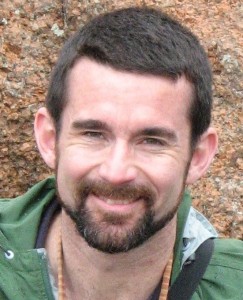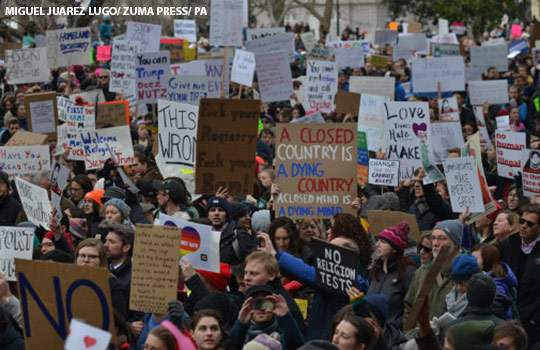 A week ago, the news was awash with shock, dismay, and outrage over President Trump’s executive order of 27 January, which temporarily suspended the United States’s refugee program and indefinitely barred the admittance of refugees from Syria.
A week ago, the news was awash with shock, dismay, and outrage over President Trump’s executive order of 27 January, which temporarily suspended the United States’s refugee program and indefinitely barred the admittance of refugees from Syria.
While it has been heartening to read reports of protests, and to see the number of professional and academic organizations mounting petitions that seek to repeal the order, I am struck today by how quickly this issue has been overshadowed by other events in the news.
Perhaps this overshadowing speaks to the rapidity with which President Trump’s administration is daily raising eyebrows with actions on all fronts (there is no shortage of startling news out of Washington!). Yet I worry that our society as a whole is missing the extent to which the mandates of the executive order represent a political, societal, and spiritual watershed for our country.
This is a political watershed in that we have now as a county set ourselves at odds against most other Western democracies, who continue to welcome diverse travelers of all nationalities and who, in particular, find our closing of doors to refugees to be morally reprehensible. In short, we have set ourselves apart from our friends and allies as being uniquely unwelcoming to those in need.
This is a societal watershed, in that it calls to mind the worst rather than the best of our heritage. Much was made in the campaign of 2016 over our national identity, our heritage, and “making America great.” Sadly, our heritage bears witness to a tradition of discrimination against immigrants and minorities.
Yet our heritage also speaks to a vision articulated by President John F Kennedy in his inaugural address of 1961: “We shall pay any price, bear any burden, meet any hardship, support any friend, oppose any foe, to assure the survival and the success of liberty.” As we see the response to President Trump’s executive order unfolding, our society must decide—will our future be one of discrimination and isolation, or one of “bearing any burden?”
Finally, this is a spiritual watershed. Those who would make much of the “Christian” heritage of the United States need to daily remember the teachings that call us to care for the “least of these” (Matthew 25:40) and to care for “widows and orphans” (James 1:27). To put a “Christian” heritage into real life expression means to stand up for and care for the needy, the oppressed, and the homeless—isolationist protectionism has nothing to do with lived Christianity.
As a society, one of our highest priorities must be to care for those most in need. We must rise to that challenge whether or not our leaders are willing to lead, and we must not allow the discussion of this issue to be pushed aside by the daily onslaught of current affairs news.
The daily news rushes on, but we must not forget the forgotten.
William E Cayley Jr practices at the Augusta Family Medicine Clinic; teaches at the Eau Claire Family Medicine Residency; and is a professor at the University of Wisconsin, Department of Family Medicine.
Competing interests: “I declare that I have read and understood BMJ policy on declaration of interests and I have no relevant interests to declare.”
